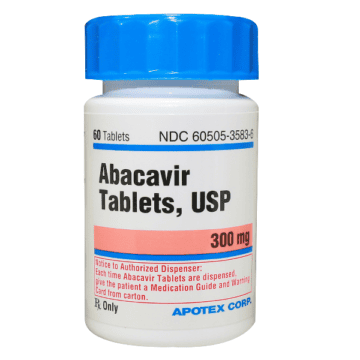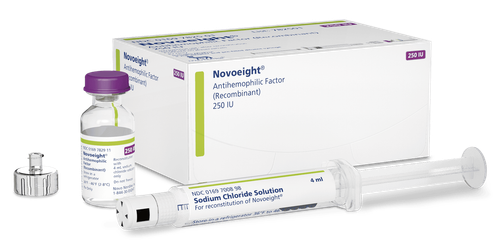This is an automatically translated article.
Use Bevyxxa (Betrixaban) is used to prevent serious blood clots from forming in people who are hospitalized for a serious illness and at high risk for blood clots (such as from being bedridden and unable to go).1. How to use Bevyxxa
Before using Betrixaban, you need to carefully read the directions on the product label or your doctor's instructions.Take Bevyxxa by mouth directly as directed by your doctor, usually once daily. Based on your medical condition, response to treatment, and other medications you're taking, your doctor will determine the right dose. Tell your doctor about all the products you use (including prescription drugs, over-the-counter medicines, and herbal products).
Do not stop taking this medicine on your own without consulting your doctor. Some conditions may get worse when the drug is stopped suddenly.
To get the best effect of the drug, you need to use it regularly and in a sufficient dose.

Thuốc Bevyxxa được sử dụng bằng đường uống, liều lượng phụ thuộc vào tình trạng bệnh của bạn
2. Side effects
You may experience slight bruising or bleeding after using Bevyxxa (such as nosebleeds, bleeding from cuts). If either of these effects persist or get worse, tell your doctor right away.This medicine can cause serious bleeding if it affects blood clotting proteins too much. Tell your doctor right away if you have any signs of serious bleeding, including: Unusual pain/swelling/discomfort, unusual bruising, bleeding from cuts or gums that won't stop, bleeding nosebleeds that don't stop or occur frequently, menstrual periods are prolonged, urine is pink/dark, coughing up blood, vomiting blood or coffee grounds-like substance, severe headache, dizziness/fainting, body fatigue unusual or absent fatigue/weakness, bloody/black/tarry stools, difficulty swallowing.
Get medical help right away if you have any signs of severe bleeding or symptoms such as: sudden vision changes, confusion, difficulty speaking, weakness on one side of the body.
Very rarely serious reactions have occurred after using Bevyxxa. However, you should contact your doctor immediately if you develop any of the following symptoms: rash, itching, feeling severe dizziness, difficulty breathing.
If you notice any other effects after using the medicine, contact your doctor.

Bạn có thể bị chảy máu cam khi sử dụng thuốc Bevyxxa
3. Precautionary measures
Before taking Betrixaban, tell your doctor if you are allergic to any of its ingredients or if you have any other allergic reaction. This product may contain inactive ingredients, which may cause allergic reactions or other problems. You should consult your doctor for more information.You need to tell your doctor about your medical history before using this medicine, especially if you have liver problems, kidney problems, bleeding (stomach/intestinal bleeding, brain bleeding), blood disorders (such as anemia, hemophilia, thrombocytopenia), trauma, surgery, frequent trauma, stroke, blood clotting disorders (antiphospholipid syndrome).
Before having surgery or any medical/dental procedure (especially lumbar puncture or spinal/epidural anaesthesia), share with your doctor all the medications you take. using. Your doctor or dentist may tell you to stop taking Betrixaban before surgery. Stopping or starting this medication should be directed by your doctor.
Betrixaban can cause stomach bleeding. Daily use of alcohol while using this medicine may increase your risk of stomach bleeding. Limit alcohol consumption while on medication. Consult with your doctor about how much alcohol you can safely consume.
This medicine may cause bleeding. To reduce the risk of injury or bruising, use extreme caution with sharp objects such as safety razors and nail clippers. To avoid bleeding, you should use an electric razor when shaving and a soft toothbrush when brushing your teeth. Avoid activities like sports. If you fall or are injured, especially if you hit your head, contact your doctor immediately. Your doctor may test your bleeding.
During pregnancy, use this medicine only when absolutely necessary. Consult your doctor about the risks as well as the benefits before using this medication.
Women who are breastfeeding should consult a doctor before taking the drug.

Uống rượu có thể làm tăng nguy cơ chảy máu dạ dày khi dùng thuốc Bevyxxa, do đó hãy ngừng uống rượu khi bạn sử dụng loại thuốc này
4. Interaction
Drug interactions can change the way a drug works or increase the risk of side effects. Give your doctor a list of all the medicines you are taking, including prescription drugs, over-the-counter medicines, and other herbal products. You should never start, stop, or change the dose of any medication without your doctor's prescription without consulting your doctor.Some drugs that may interact with betrixaban include: Mifepristone, other drugs that can cause bleeding/bruising (including antiplatelet drugs such as clopidogrel, NSAIDs such as ibuprofen/naproxen, blood thinners such as warfarin/dabigatran), some antidepressants (including SSRIs such as fluoxetine, SNRIs such as desvenlafaxine/venlafaxine), and certain drugs used to treat seizures (such as carbamazepine, phenytoin).
If overdose and severe symptoms such as unconsciousness or difficulty breathing, contact your doctor immediately. Symptoms of an overdose of betrixaban include: Bloody/black/tarry stools, pink/dark urine, unusual or persistent bleeding.
Medical tests (such as kidney function, hematocrit/hemoglobin, red blood cell count) should be done while you are taking this medicine.
Medicines need to be stored under heat conditions
When betrixaban is used in combination with Aspirin may increase the risk of bleeding. However, you should continue to take it unless otherwise directed by your doctor, if your doctor has directed you to take low-dose aspirin to prevent a heart attack or stroke (usually in the range of 81-325 milligrams per day).
Other drugs can affect the removal of betrixaban from your body, which affects how betrixaban works. Store the medicine at room temperature, away from light and moisture. Keep the medicine away from children and pets.
Dispose of the product properly when it is no longer in use or has expired.
Please dial HOTLINE for more information or register for an appointment HERE. Download MyVinmec app to make appointments faster and to manage your bookings easily.
Reference source: webmd.com












